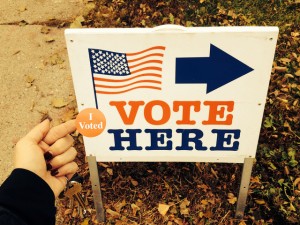
A Scholars Strategy Network Scholar Spotlight. Originally posted on November 3, 2014
In a democracy, the equal right to vote should be sacrosanct, but across the country many states are throwing up new obstacles to voting.
SSN experts probe why this is happening – and explain how constructive reforms could enlarge voter participation and insure the integrity of U.S. elections
In 2013, in Shelby v. Holder, a divided Supreme Court invalidated a section of the 1965 Voting Rights Act that had required states with a history of racial discrimination in voting to seek federal approval before making changes to their voting rules. Given a free hand, Texas, Mississippi, North Carolina and other states jumped to pass new rules that have the effect of making it harder for many minority and low-income citizens to vote. The impact will be felt immediately in those states, but the issue matters to Americans everywhere. As Yale University’s Marcus Anthony Hunter explained in the Washington Post on Martin Luther King Day, “Voter Suppression is a Threat to All.”
A CONVENIENT UNTRUTH
Fraud by individual voters in the modern United States is vanishingly rare, so the claim that new voter restrictions are necessary to combat such fraud does not hold water. Yet just because an idea is demonstrably false does not mean that it cannot powerfully shape public policy. New SSN briefs unravel what is really going on.
> The Misleading Myth of Voter Fraud in American Elections
Lorraine C. Minnite, Rutgers University-Camden
A review of thousands of prosecutors’ records and media reports shows that the average American is more likely to be hit by lightning than to commit individual fraud at the polls.
> Convincing Evidence that States Aim to Suppress Minority Voting
Keith Gunnar Bentele and Erin O’Brien, University of Massachusetts Boston
New voter restrictions are most likely in Republican-controlled states where growing groups of African American and Latino voters are turning out to vote in increasing numbers. more...

 Research to Improve Policy: The Scholars Strategy Network seeks to improve public policy and strengthen democracy by organizing scholars working in America's colleges and universities. SSN's founding director is Theda Skocpol, Victor S. Thomas Professor of Government and Sociology at Harvard University.
Research to Improve Policy: The Scholars Strategy Network seeks to improve public policy and strengthen democracy by organizing scholars working in America's colleges and universities. SSN's founding director is Theda Skocpol, Victor S. Thomas Professor of Government and Sociology at Harvard University.